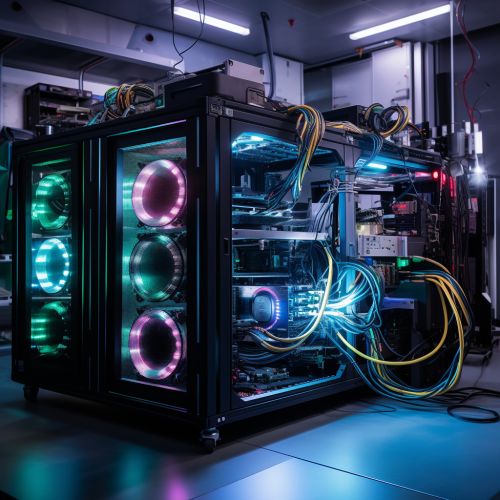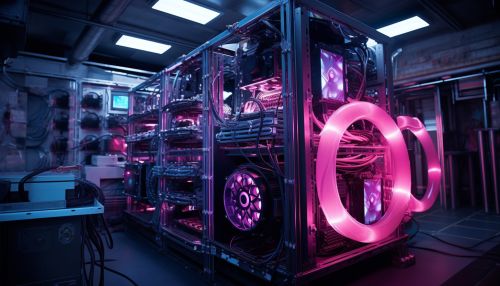Advances in Quantum Computing with Quantum Annealers
Introduction
Quantum computing is a rapidly evolving field that leverages the principles of quantum mechanics to process information. One of the most promising developments in this field is the advent of quantum annealers, a type of quantum computer that uses quantum fluctuations to find the global minimum of a given function. This article delves into the advances in quantum computing with quantum annealers, providing a comprehensive and detailed overview of the subject.


Quantum Computing: A Primer
Quantum computing differs fundamentally from classical computing. While classical computers use bits as their smallest units of data, quantum computers use quantum bits, or qubits. Qubits can exist in a superposition of states, allowing them to process a vast amount of information simultaneously. This property, along with entanglement and quantum interference, are the key principles that quantum computers leverage to solve complex problems.
Quantum Annealing
Quantum annealing is a quantum algorithm that harnesses the principles of quantum mechanics to solve optimization problems. It is inspired by the process of annealing in metallurgy, a technique involving heating and controlled cooling of material to increase its size. Similarly, quantum annealing involves manipulating a quantum system from an initial state to a more desirable state, often the ground state, which represents the optimal solution to a problem.
Advances in Quantum Annealing
Quantum annealing has seen significant advances in recent years, with improvements in both hardware and software.
Hardware Advances
One of the major hardware advances is the development of more robust and scalable qubits. Companies like D-Wave have been at the forefront of this advancement, developing quantum annealers with thousands of qubits. These machines are capable of solving larger and more complex problems than their predecessors.
Software Advances
On the software side, advances in quantum algorithms and programming languages have made quantum annealing more accessible and efficient. New quantum programming languages, such as Q# and Quipper, have been developed specifically for quantum computing. These languages allow programmers to write and debug quantum algorithms more easily.
Applications of Quantum Annealing
Quantum annealing has a wide range of applications, from optimization problems in logistics and finance to machine learning and drug discovery.
Optimization Problems
Quantum annealing is particularly well-suited to solving optimization problems, which involve finding the best solution from a set of possible solutions. These problems are common in logistics, finance, and many other fields.
Machine Learning
Quantum annealing also has potential applications in machine learning. By leveraging the power of quantum computing, researchers hope to develop more efficient machine learning algorithms that can handle larger datasets and more complex models.
Drug Discovery
In the field of drug discovery, quantum annealing could potentially revolutionize the way new drugs are discovered and developed. By using quantum annealing to model molecular interactions, researchers could potentially identify promising drug candidates more quickly and accurately.
Future of Quantum Annealing
The future of quantum annealing is promising, with ongoing research and development in both hardware and software. As quantum annealers become more powerful and accessible, they are expected to find applications in a wide range of fields, from artificial intelligence to materials science.
